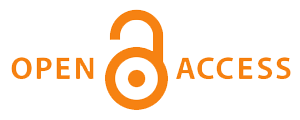The Effectiveness of Quantitative Instruments in Controlling Money Supply
An Applied Research in the Central Bank of Iraq
Abstract
This research deals with the role of quantitative (indirect) tools of monetary policy that used by the Central Bank of Iraq in order to control and manage the size of the money supply that intermediate goal through which monetary policy is able to achieve its final goals, foremost among which is to reduce inflation and raise the value of the local currency in front of foreign currency rates. The research is based on a major hypothesis stating that quantitative tools have a direct and strong influence on the money supply, especially under the circumstances of the shift towards a market economy. There has been a branching relationship with this statistically significant relationship between the money supply and the quantitative tools used by the central bank Iraq, which is represented in the following: (requirements of legal reserve, open market operations, re-discount rate, existing deposit facilities), and the conclusions reached showed that the Central Bank of Iraq, through its implementation of the above monetary policy, was able to achieve successes that were led by a decrease Inflation to addition to the improvement of the Iraqi dinar exchange rate and stability.
Downloads
Published
Issue
Section
License
The copyright is transferred to the journal when the researcher is notified of the acceptance of his research submitted for publication in the journal.


